This is a recent blog post from Langham Preaching Director Paul Windsor.
The generation that came after me tends to impress me more than the babyboomer one that went before me. Speaking very generally, and yet observing it repeatedly, their hearts seem to be turned towards the world more radically. For me it started when we hosted a young adults’ home group for almost a decade. Their questions. Their commitments. Refreshingly different. It is the generation of our own children, who played their part in bringing this orientation to the world into our family.
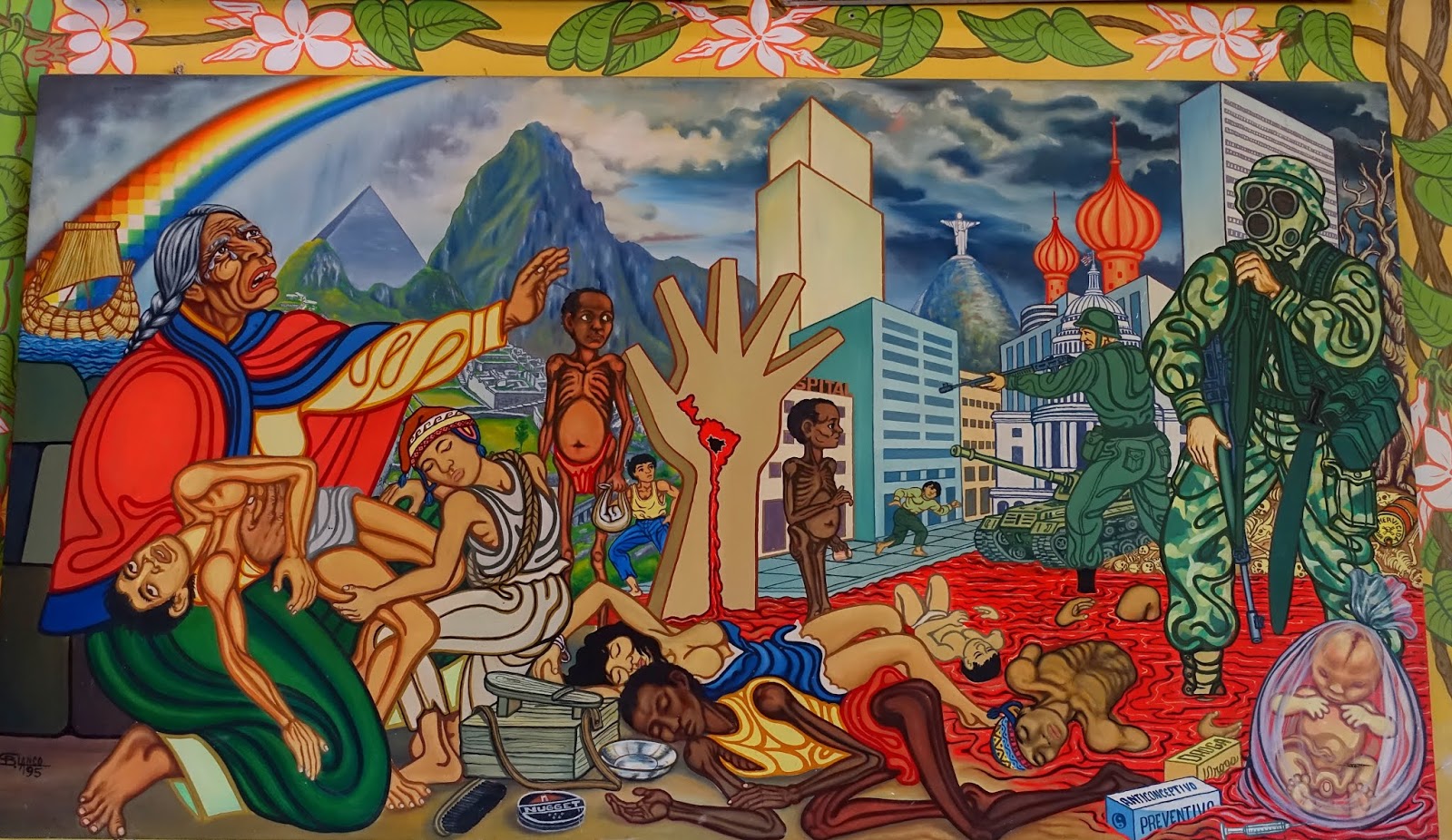
All the art in this post is taken from a retreat centre in Cadeca, outside Cochabamba, in Bolivia.
The issues they raise multiply. Unfair trade. Gender inequality. Colonialism. Trafficked children. Climate change. While I do wish more of them were concerned about abortion, as one of the great acts of injustice in the world’s margins, those who can’t get themselves concerned about any thing other than abortion are a bigger worry. The common denominator? Issues of justice. A heart for the margins. Garth Hewitt, Amos, Isaiah and Jesus had a fair bit to do with it – but so did this generation.
I will be forever grateful to them. But here is my question. I ask it with equal amounts of respect, gentleness and urgency, addressing it to those who claim to belong to Jesus.
If you can, imagine a world where trade is fair, the genders are equal, the colonialists (it is also a 21st century phenomenon, by the way) no longer abuse, children are free and the climate no longer changes. You get the idea. Can you imagine that world with me? With those numerous issues resolved, will such a world be free of problems? The answer is a resounding ‘No’. Problems will remain. This would suggest that to resolve the problems in the world something more is needed, something even more radical.
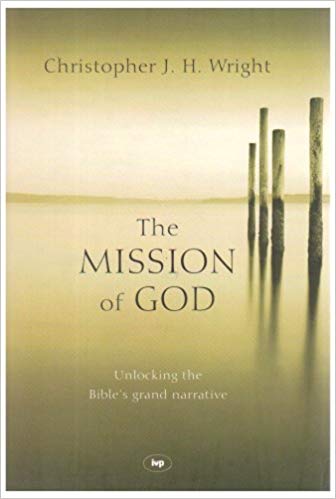 Before I explain myself, let me jump straight to a quotation from Chris Wright as he brings to conclusion a section on holistic mission in his book, The Mission of God:
Before I explain myself, let me jump straight to a quotation from Chris Wright as he brings to conclusion a section on holistic mission in his book, The Mission of God:
The language of the ‘priority of evangelism’ implies that the only proper starting point must always be evangelistic proclamation. Priority means it is the most important, most urgent, thing to be done first, and everything else must take second, third, or fourth place. But the difficulty with this is that (1) it is not always possible or desirable in the immediate situation, and (2) it does not even reflect the actual practice of Jesus.
Rather, almost any starting point can be appropriate, depending possibly on what is the most pressing or obvious need. We can enter the circle of missional response at any point on the circle of human need. But ultimately we must not rest content until we have included within our missional response the wholeness of God’s missional response to the human predicament – and that of course includes the good news of Christ, the cross and resurrection, the forgiveness of sin, the gift of eternal life that is offered to men and women through our witness to the gospel and the hope of God’s new creation. That is why I speak of ultimacy rather than primacy. Mission may not always begin with evangelism. But mission that does not ultimately include declaring the Word and the name of Christ, the call to repentance, and faith and obedience has not completed its task. It is defective mission, not holistic mission (318-319, emphasis his).
So, yes, let’s affirm it. ‘Almost any starting point can be appropriate … we can enter the circle of missional response at any point on the circle of human need’. Any of these issues will do fine. They reflect areas of serious ‘human need’. Concern for them must not diminish. But what do you do about ultimacy? As one belonging to Jesus, how do you know you’ve arrived, not just started? If you tend to be known as a single-issue person (or, even if you are able to hold multiple issues), you may be placing more hope in the changes you long to see than those changes are able to deliver. Unless you move further into the circle and ultimately see the importance of people having a transforming encounter with Jesus Christ, you will never be quite radical enough in your approach.
Having had a focus beyond ‘the West’ for a decade I can feel either a bit disengaged from these sorts of issues, or they take on an even more dramatic profile. An example of the former, would be buying Fair Trade products. It hardly surfaces over here. Given the bigger issues which hog the headlines, it is easy for cynical-me to view this as what wealthy people do when they want to nibble at changing the world. Maybe what they need to hear is, “Go, sell all your coffees and give your money to the poor!” 🙂 As an example of the latter, take gender inequality. The issues are extreme. This country has 18% of the world’s population and yet 37% of the world’s female suicides. Horrific. Last year I made an engagement with ‘the fate of women’ here to be part of the major assessment in a preaching class.
With Chris’ comments about ultimacy in our ears and in wanting to channel stuff from this context that has helped me, here is my checklist of five questions to help us become more radical. [NB: While there is talk about partnership today, it still tends to be one way. Well, here is something of what the church ‘over here’ has to to offer the church ‘in the West’. Let’s humble ourselves. Let them show us the way.]
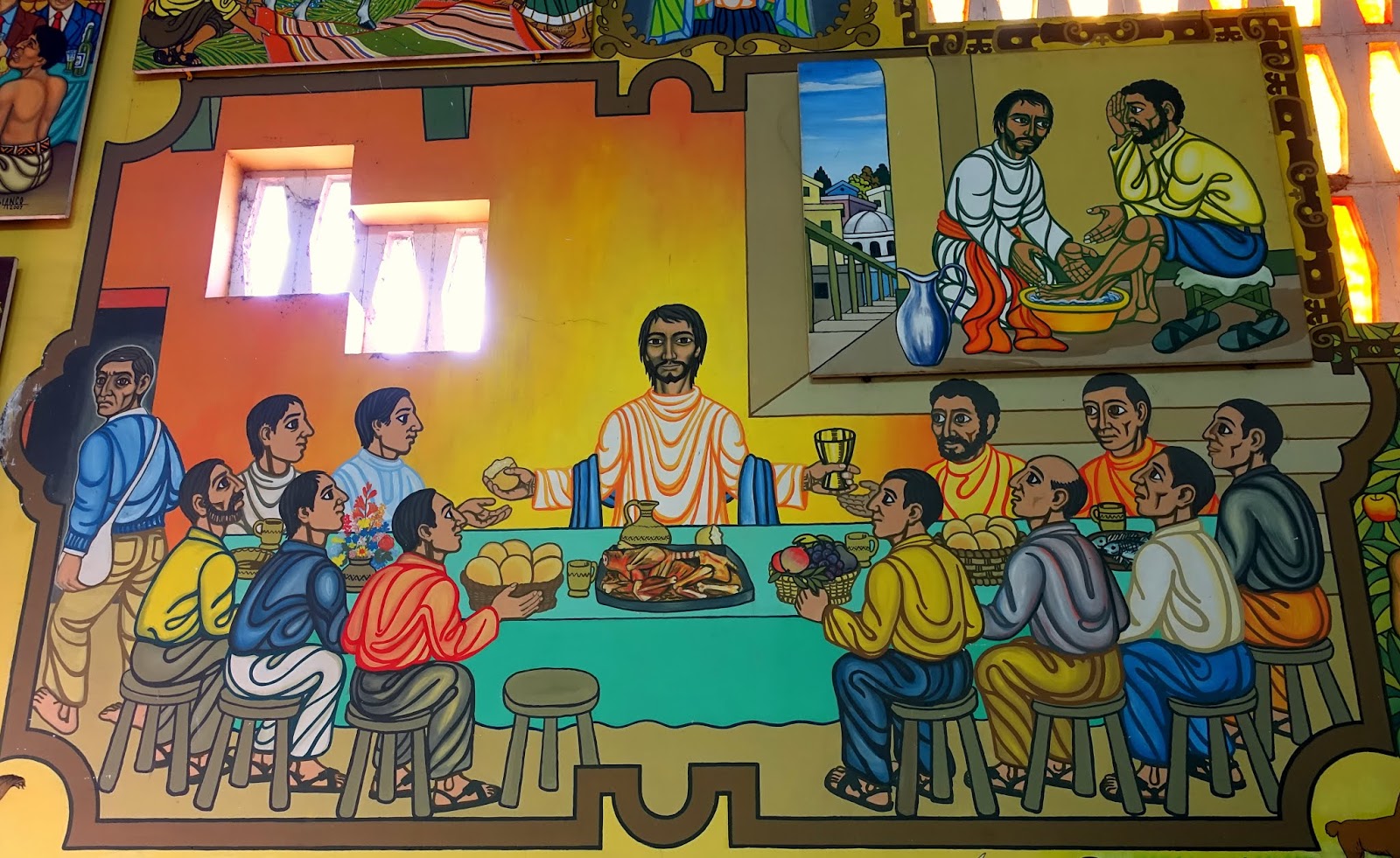 1. How full is our gospel?
1. How full is our gospel?
Over the last two Sundays, in the church we attend, it has been a sharing time. A couple working in a slum filled with a minority religion one week and then a group of women who have a shelter for abused women the next week. Both stories had me in tears. One reason is that they are not at all bashful about speaking the good news of Jesus Christ into the lives of people in these settings. In fact one woman told her story of exactly this happening to her. It was beautiful. I know the Nazareth Manifesto (Luke 4) is a favourite passage. But please remember it is not only about freedom for prisoners, sight for the blind, and release for the oppressed – it is also about preaching good news to the poor. When Jesus wept over Jerusalem was it because they were oppressed and hungry and poor? No. Primarily, it was because they had rejected him. Let’s not entertain the thought of living in the margins for Jesus’ sake without speaking about Jesus in those margins, commending him to others, with love and warmth and urgency. Jesus himself would want it no other way.
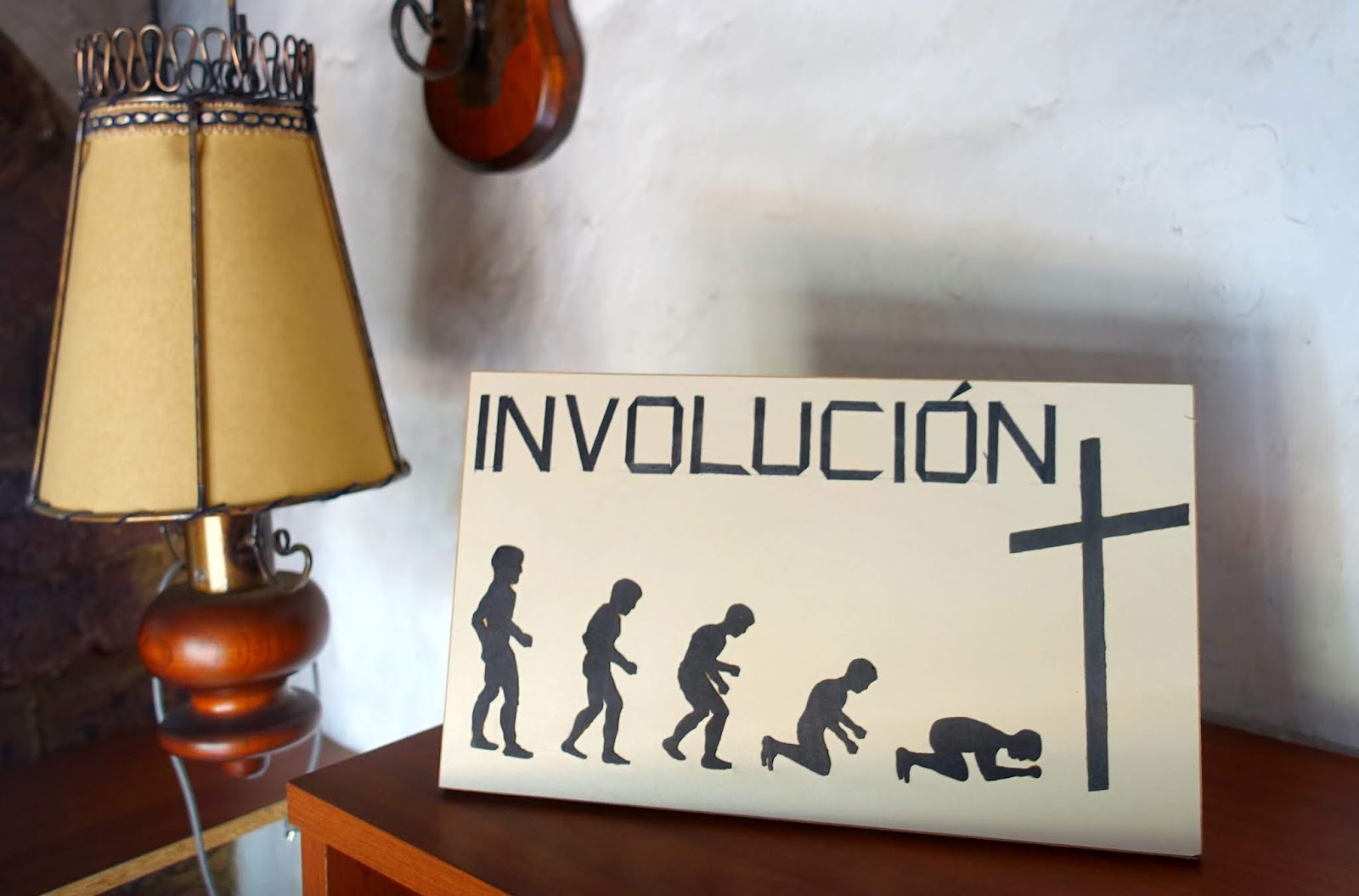 2. How much is Jesus our Master?
2. How much is Jesus our Master?
In public prayer ‘over here’ this is far and away the most common way to refer to Jesus. ‘My Master’. I hear it all the time. This keen awareness, in prayer, that Jesus is the boss of their life. He is more than their friend. He is more than their ‘go-to guy’ when they have a need. I was raised on ‘if Jesus is not Lord of all, he is not Lord at all’. It is still true. There are to be no pockets in my life still under my control. That is how it works with Jesus. When I was much younger, I developed a creed to live by. The ‘whatever-wherever-whoever-whenever’ creed. It goes something like this: “Jesus can put me in whatever situation he likes, with his help I will find contentment; Jesus can send me wherever he likes, with his help I will find obedience; Jesus can call me to love whoever he likes, with his help I will find compassion; and Jesus can return whenever he likes and at that moment, with his help, I will be fully committed.” It is a lot harder to live than it sounds, but the point is this: Jesus wants us to be his, totally his. No less than this will do.
3. How complete is our menu?
This is an observation that worries me. It is far too common. The Bible, together with the God it reveals and the Jesus to whom it points, easily becomes a buffet where we pick and choose the bits we like, but simply avoid the spinach and the kumara – or, leave it for someone else to eat and enjoy. The Bible doesn’t work like that and neither does God, or Jesus. If you want to partner with them in mission in the margins, the Bible needs to be read sensitively, carefully, fully, contextually – using accurate principles of Spirit-illuminated interpretation – and then what it teaches, whatever it is found to teach, is to be absorbed into our lives, whether we warm to it or not. It is not a buffet. This is why a deeper, systematic and sustained teaching through books of the Bible is just so critical, as opposed to the more shallow, breezy dipping into the favourite topics. The former way is how we are more likely to encounter God’s hobby-horses again and again, rather than just hearing the reassuring echoes of what we already believe, again and again.
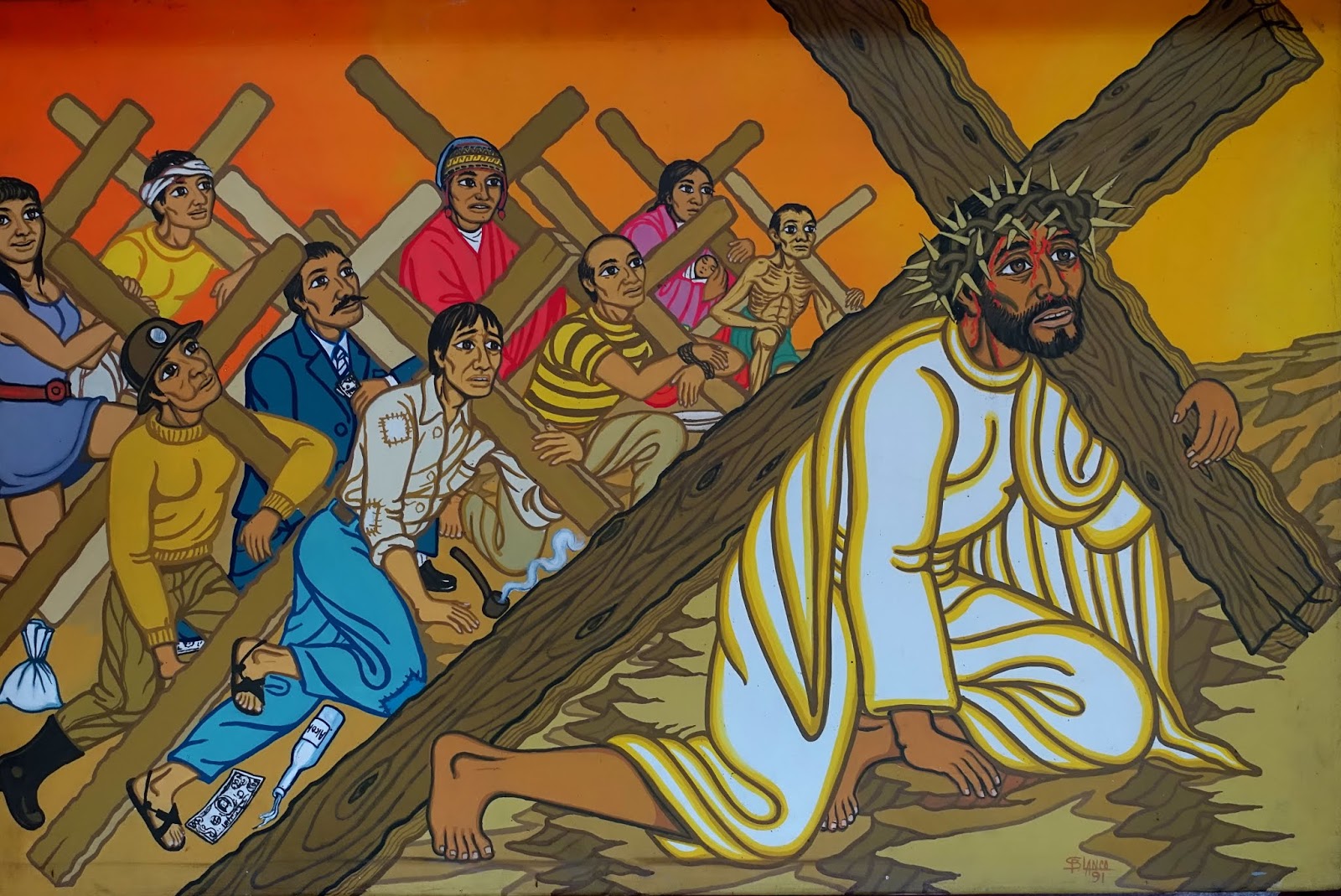 4. How real is our suffering?
4. How real is our suffering?
It is a clear assumption of the New Testament: “Do not be surprised at the painful trial you are suffering, as though something strange were happening to you” (1 Peter 4.12). That is just one place. But it does surprise us. It is strange to us. We do all we can to avoid it. What’s more, this is not the suffering inflicted on us by power-brokers in the church. That suffering is not this suffering. No. No. This suffering is something we feel because we are out-of-step with the world around us, the very suffering that people take in their stride so readily ‘over here’. We should feel some heat – somewhere, sometime – for belonging to Jesus. Do you? In Destroyer of the Gods, Hurtado is clear about the secret of the influence of the church in the early centuries: “fitting in and being different”. He goes on to say, “a successful religious movement must retain a certain level of continuity with its cultural setting, and yet it must also ‘maintain a medium level of tension’ (quoting the guru, Rodney Stark) with that setting as well … there has to be a clear difference between being an insider to the group and an outsider.” Did you see that? There has to be a clear difference between being an insider to the group and an outsider. This is right at the heart of why our holistic mission can become a deficient mission – and why so much mission ‘over here’ is so often effective. Jesus wants you to be a light, shining bright and clear in the darkness.
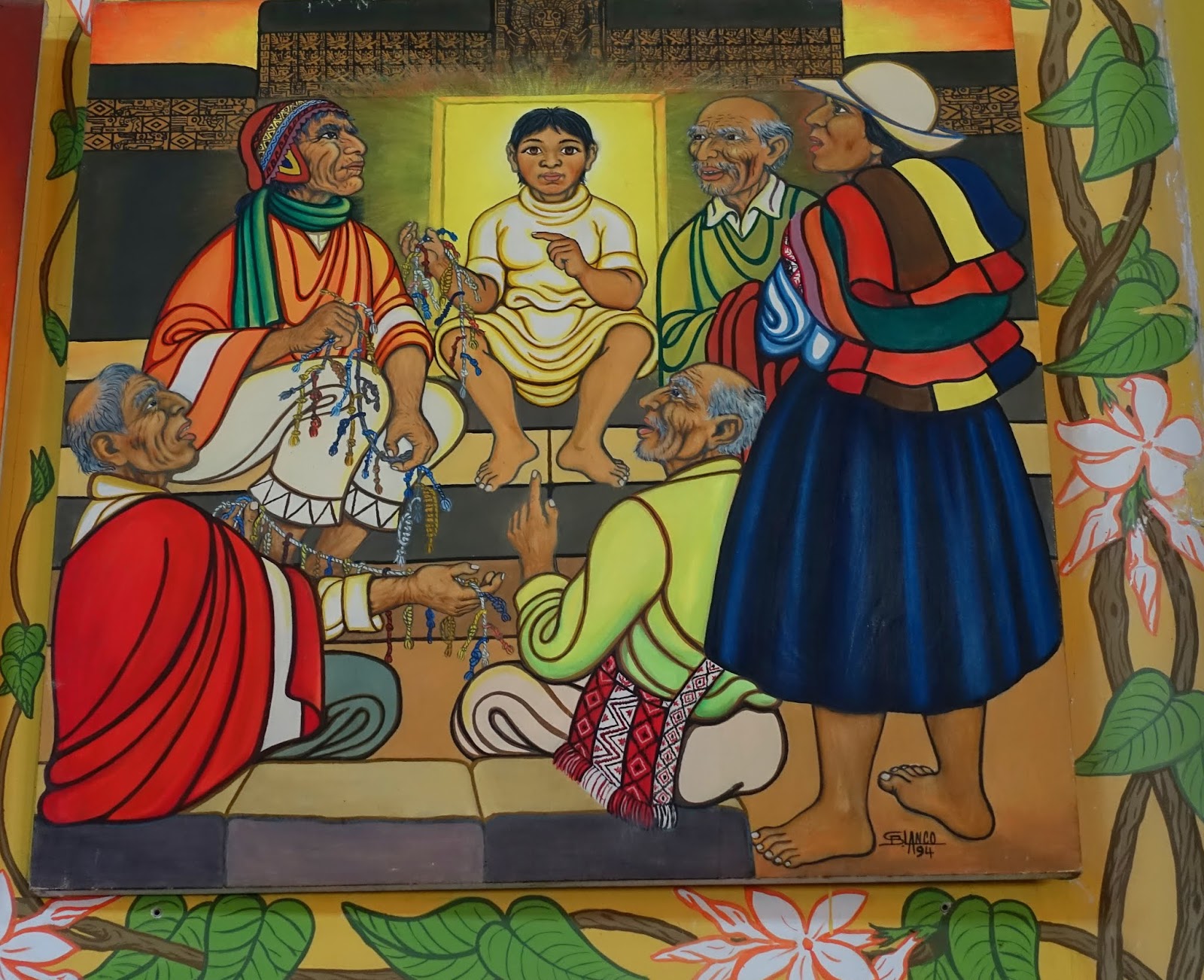 5. How important is our maturity?
5. How important is our maturity?
‘Messy mission’ has become a favourite phrase. Not sure I understand it yet, or why it is needed. The messy mission that is more concerning for me is the way mission done by immature people can so often end up as a mess. Please don’t think that the only mandate in the New Testament is mission. It isn’t. There is also maturity, growing deep and strong and secure in Christ. Knowing what you believe and why you believe it. Letting unshakeable convictions hold you. They are pretty good at mission ‘over here’ – and the heart cry I hear as I travel is the desire to partner together in a way that enables the deeper growth that comes through the ministries of the Word. So let’s save our involvement in the mission of God from becoming a mess by investing in becoming mature, Godly and Christlike and Spirit-ual. What ministries of the Word are shaping my life? How are you deepening in your discipleship? Are we hearing new voices, reading new authors? Are we asking hard questions? Jesus wants us to grow deep in him, not just be a follower of him.
